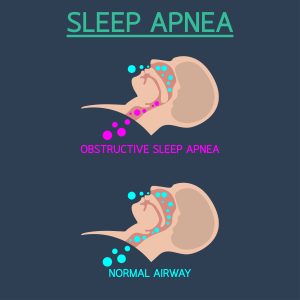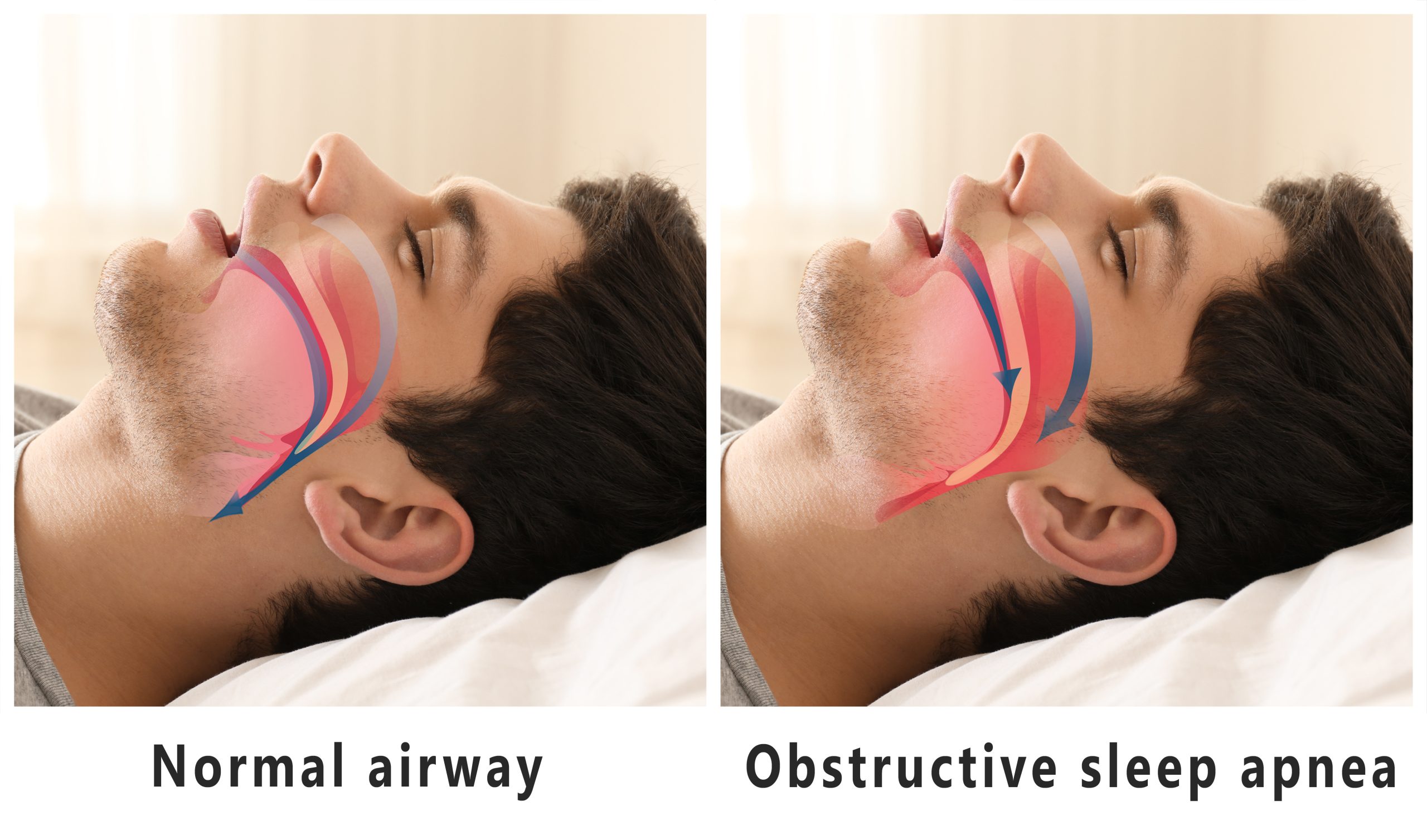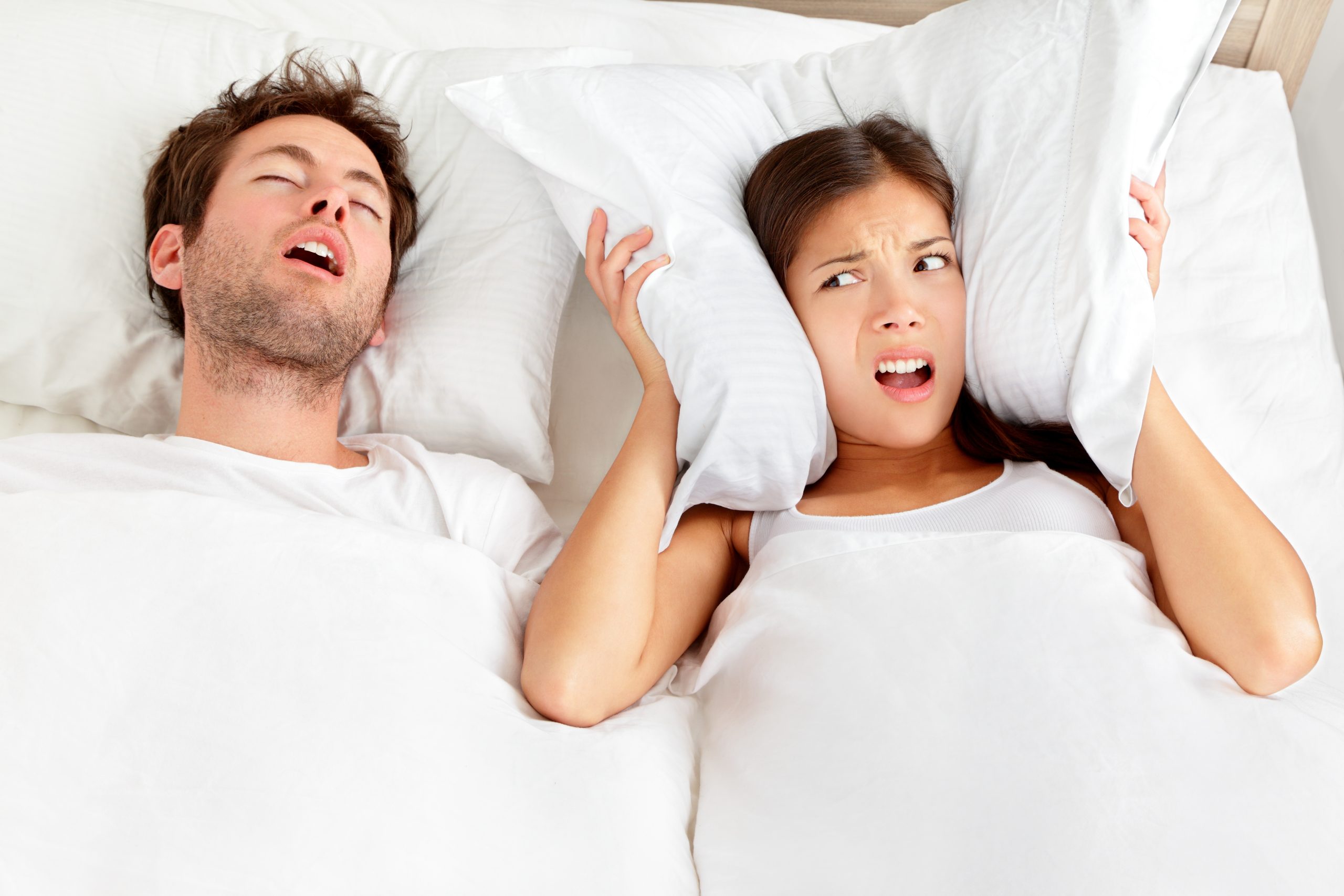Sleep Apnea & Snoring Treatments In St. Albert
Poor Sleeps? Snoring Problem?
or do you suffer from Daytime Fatigue?
You might be suffering from sleep apnea,
but Mission Dental can help you sleep properly again
Sleep Apnea is a condition where the airway becomes blocked, preventing breathing. You might wake up in the middle of the night to gasp for air and fall back asleep. Often in these situations, you have no memory of these incidents. The lack of breathing often causes a significant drop in blood oxygen levels.

Related Services
Emergency Cases
If You Are In the St. Alberta Area and Have a Dental Emergency. Please Call Us At:
Obstructive Sleep Apnea

Obstructive Sleep Apnea (OSA) is the most common type of sleep apnea. It occurs when the soft tissue in the back of your throat collapses and blocks your airway. This blocking prevents your breath and deprives your brain and heart of needed oxygen. The lack of breathing can increase your blood pressure and heart rate, placing you at greater risk of a heart attack and stroke.
Get the Rest That You Deserve
Learn how an oral appliance offers a non-invasive treatment option for snoring and
obstructive sleep apnea that can fit easily into your lifestyle.
Get the Rest That You Deserve
Learn how an oral appliance offers a non-invasive treatment option for snoring and
obstructive sleep apnea that can fit easily into your lifestyle.
Symptoms of Sleep Apnea
Some of the following symptoms of Sleep Apnea include:
- Daytime Fatigue and Drowsiness
- Headaches
- Teeth Grinding
- Abrupt awakenings accompanied by shortness of breath
- Difficulty concentrating
- Dry Mouth
- Mood swings

If you think you or a loved one might is affected by sleep apnea or has excessive snoring, speak to Dr. Dimitrov about how he treats sleep apnea patients. Most people find that their quality of life improves significantly after seeking help for their sleep apnea and finding an effective treatment option.
Questions We Often Hear From Patients
How is Sleep Apnea Diagnosed?
Sleep apnea is typically diagnosed through a sleep study or polysomnography conducted in a sleep laboratory. This comprehensive test records brain waves, oxygen levels in your blood, heart rate, breathing, and eye and leg movements during the study. Sometimes, a home sleep apnea test (HSAT), a simplified version of polysomnography that can be conducted in your bed, may be used. A sleep specialist analyzes the results of these tests to determine if you have sleep apnea and its severity.
What are the Treatment Options for Sleep Apnea?
Treatment options for sleep apnea include:
- Continuous Positive Airway Pressure (CPAP): The most common treatment, especially for moderate to severe obstructive sleep apnea. A CPAP machine delivers a steady stream of air through a mask, keeping the airway open during sleep.
- Oral Appliances: Dental devices that reposition the lower jaw and tongue during sleep, more suitable for mild to moderate cases.
- Lifestyle Changes: Weight loss, avoiding alcohol and smoking, changing sleep positions, and treating nasal allergies can help alleviate symptoms.
- Surgery: Surgical options are considered when other treatments have failed or are unsuitable. Procedures can vary depending on the cause of the sleep apnea.
Are There Alternatives to CPAP for Sleep Apnea?
Yes, there are alternatives to CPAP, including:
- Oral Appliances: Custom-fitted dental devices that keep the airway open by holding the tongue or lower jaw forward during sleep.
- Positional Therapy: For those with position-dependent sleep apnea, sleeping in a non-supine position (not on the back) can be helpful.
- Surgery: Various surgical procedures, like UPPP, jaw advancement, or nasal surgeries, might be effective in certain cases.
- Lifestyle Changes: Sometimes, weight loss, avoiding alcohol before bedtime, and quitting smoking can significantly improve symptoms.
Can Lifestyle Changes Help with Sleep Apnea?
Yes, lifestyle changes can effectively manage sleep apnea, particularly in mild cases. These changes include:
- Weight Loss: Obesity is a significant risk factor for obstructive sleep apnea. Losing weight can reduce the severity of symptoms.
- Exercise: Regular physical activity can improve sleep apnea without weight loss.
- Avoiding Alcohol and Smoking: Alcohol relaxes the throat muscles, potentially worsening sleep apnea, and smoking can increase inflammation and fluid retention in the airway.
- Changing Sleep Positions: Sleeping on your side instead of your back can reduce symptoms.
Is Sleep Apnea Treatment Covered by Insurance?
Coverage for sleep apnea treatment varies depending on the health insurance plan. Most insurance plans, including Medicare, typically cover sleep studies, CPAP machines, and other treatments if deemed medically necessary. Oral appliances are often covered under dental insurance plans. It’s advisable to check with your insurance provider for specific coverage details, including deductibles and copayments.

Meet Dr. Arnold Dimitrov
Dr. Arnold Dimitrov has extensive experience treating snoring and helping those with sleep apnea regain healthy sleep patterns. Schedule an appointment to start your journey to having deep sleeps again.
Schedule an Initial Consultation with Dr. Arnold Dimitrov
Related Services
